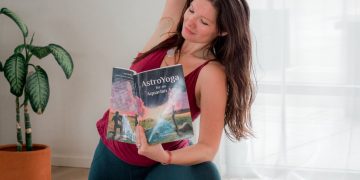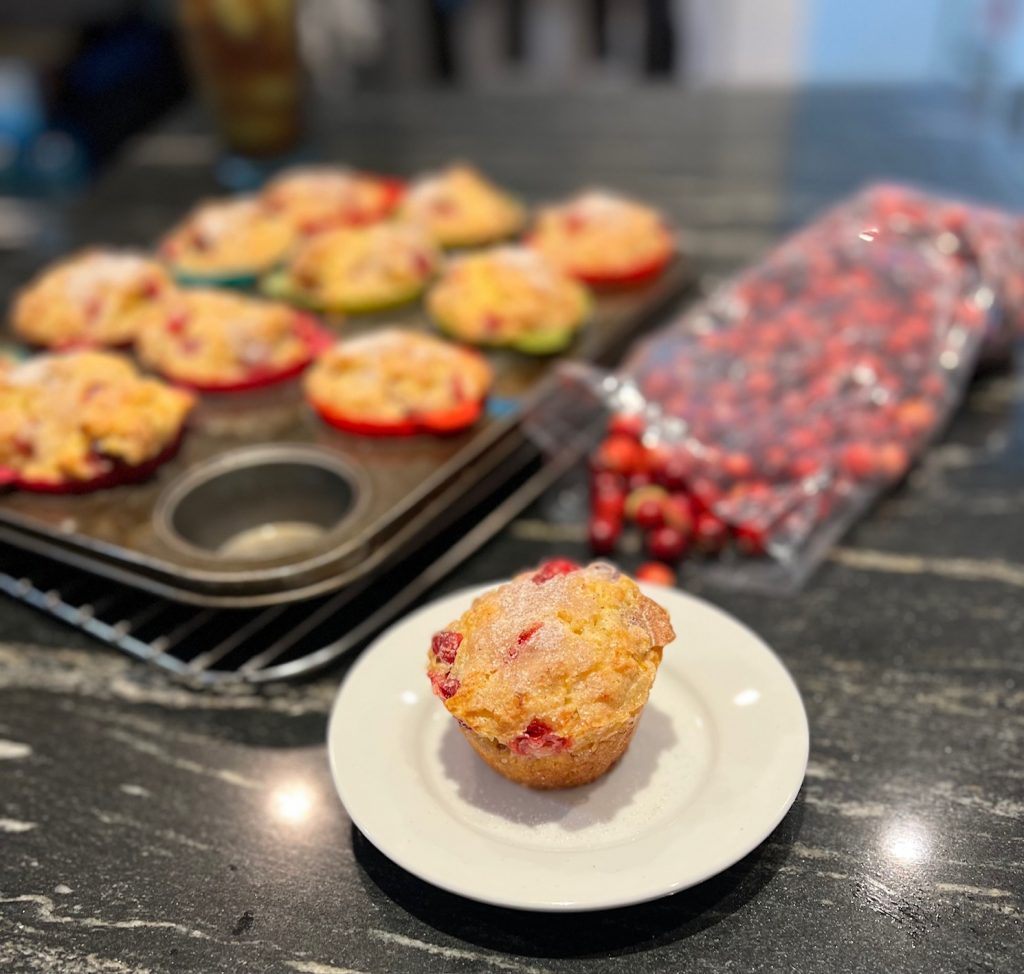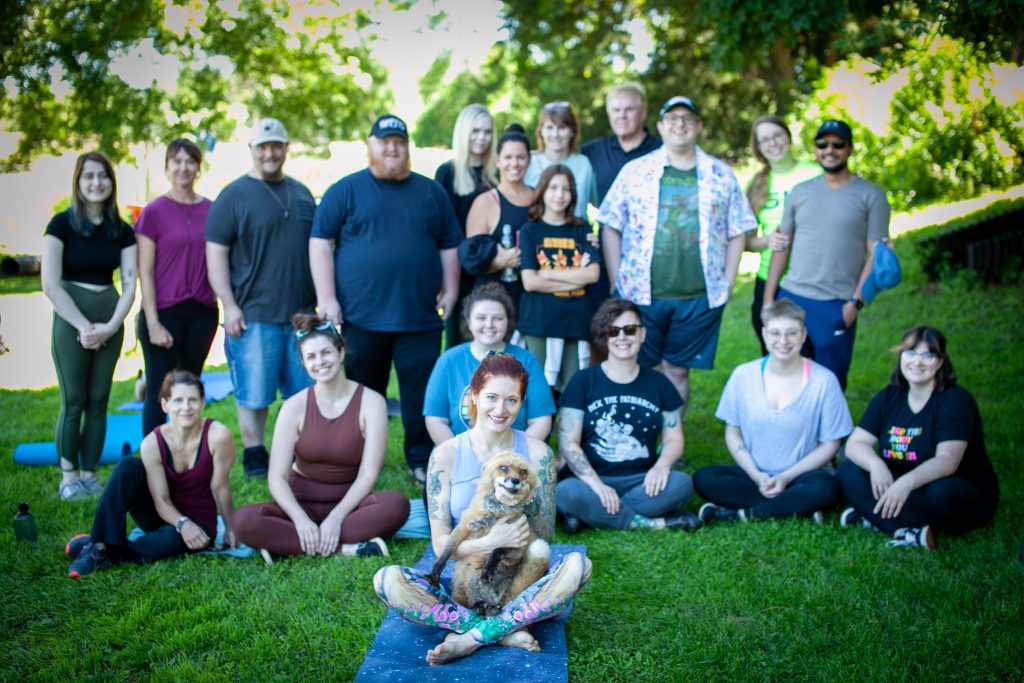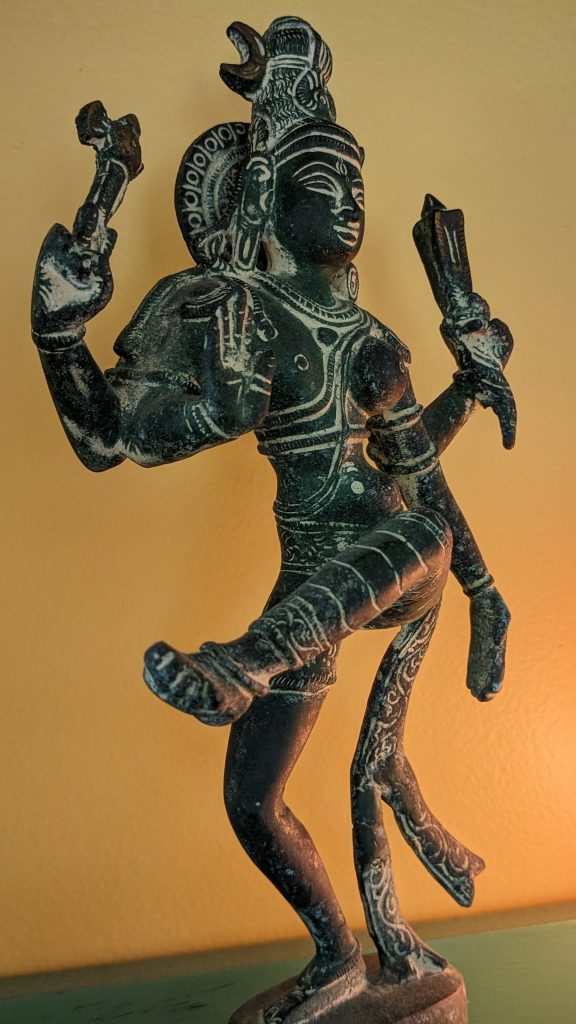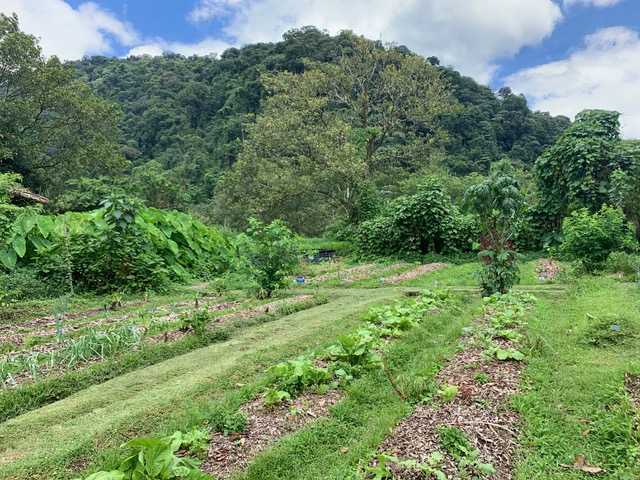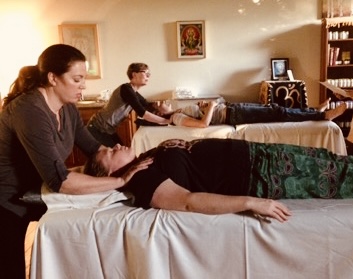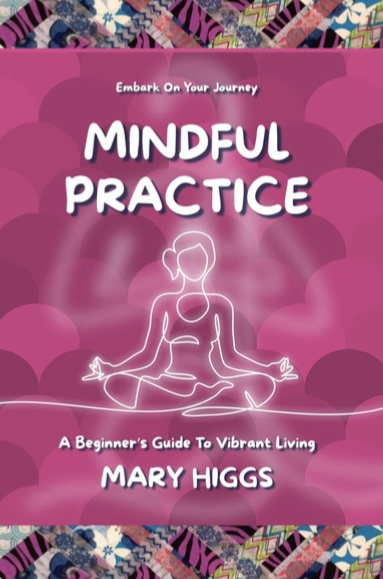Those who are new to yoga, particularly people of color, can have lots of misconceptions about what yoga is and who it’s for. Those were my confusions when I first started. Yoga was created as part of a religious practice, and for Buddhists and others, it is still used that way. However, yoga today, particularly in the West, is a mostly secular practice. It doesn’t adhere to any religion, dogmas, or spiritual beliefs. Doing yoga doesn’t require joining or belonging to a particular faith, community, culture, or ethnicity. Yoga is simply a tool to harmonize and balance your mind, your body, your breath, and your inner self.
I had a chance to chat with Melissa Shah, a yoga instructor of Indian descent, who is originally from Brooklyn but now lives in Memphis. Melissa said that, for her, yoga is the practice of being present: “It’s practicing this ability to direct your mind from something deeper within yourself. It’s tapping into something deeper within you that’s unchanging and being able to see and observe things from that place.”
In other words, yoga is a very personal practice, with many of the same benefits as meditation. In addition, yoga has many different styles, and every class is different. Some are more contemplative, and some are more physical. It’s important to find the style of yoga that works for you, since the rule that one size does not fit all certainly applies here. I suggest researching the most popular styles of yoga online and trying several different classes to see which one appeals to you and works best for your lifestyle. For people of color in the West, there is the further issue that yoga can seem like something for only elites to enjoy. Melissa said: “In a world where so many countries have been colonized and Westernized, it can feel that way. It makes me wonder how far do we need to trace back to see what these practices really were without the influence of white people?”
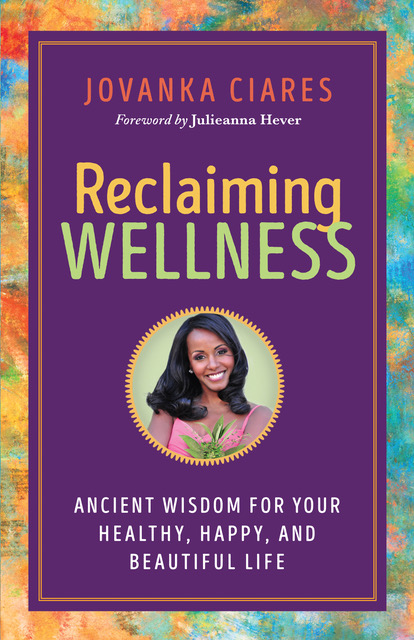
We both agreed that we don’t have the answer to that question. Growing up, Melissa struggled for years to fully embrace her heritage and culture while living in white American society. “Looking back,” Melissa said, “I never actually felt like I belonged, and I also hid the fact that I did yoga after school two or three times a week with my sister, at our family friend’s house, or that I
was studying to be a teacher when I was in high school and college. I remember I had frames of one of the enlightened beings, and he’s kind of sitting like the Buddha, in a cross-legged position, eyes closed, meditating, not wearing any clothes. That was a very customary thing to have in your house, of this being. I remember my friends coming over for some birthday party or whatever, and I hid all of those things. I put them in a piano bench. I thought, they’re just going to make fun of it, like why is there a naked man on the wall?”
Melissa said it took years before she felt confident enough to handle those situations and proudly display her Indian heritage. Melissa also now sees her nieces and nephews growing up as second-generation American children with parents who are helping them bridge the two worlds in a proud manner.
Melissa said that she and other yoga instructors of color are embracing the concept of “decolonizing my mind.” Like yoga itself, this is also a very personal experience and different for everyone. She said, “If I want to decolonize these spaces, it has to start with me doing that for my own patterning and my own brain. If I’m doing that, then that is going to be what I’m going to put out there as well. I think one way I do that is by always sharing that there’s always going to be something to learn, but I think a part of decolonization and helping people to reclaim these practices is forgetting about being perfect at it. Because that’s very much a Western mentality that most of the world has adopted. It’s not just unique to America. The idea of ‘If I don’t do it perfectly, then I don’t belong here at all.’ If that’s the model we’re going with, then BIPOC can never reclaim these practices. Because if we’re trying to strive to be how the white dominant culture is, how whiteness has done it, we’re never going to get there.”
I also believe that people of color should feel like they belong, whether in a yoga studio or in a wellness conference. No one has to be perfect; everyone just has to believe in themselves and their own wellness. Since that fateful day in a New York yoga studio, I have practiced with dozens of amazing yoga teachers in New York, Los Angeles, and beyond. I have taken classes in five different continents and have practiced alone in hotel rooms. Yoga comes with me wherever I go because it is an important part of my wellness routine. This is the way those initial yogis wanted it: Yoga is a tool for wellness that everyone can embrace and make their own.
Jovanka Ciares is the author of Reclaiming Wellness: Ancient Wisdom for Your Healthy, Happy, and Beautiful Life and several other titles. A certified wellness expert, integrative herbalist, nutrition educator, and coach, she offers lectures and workshops in Spanish and English. A native of Puerto Rico, she lives in Los Angeles. Visit her online at http://www.jovankaciares.com.
Excerpted from the book Reclaiming Wellness: t. Copyright ©2022 by Laura McKowen. Printed with permission from New World Library — www.newworldlibrary.com.






